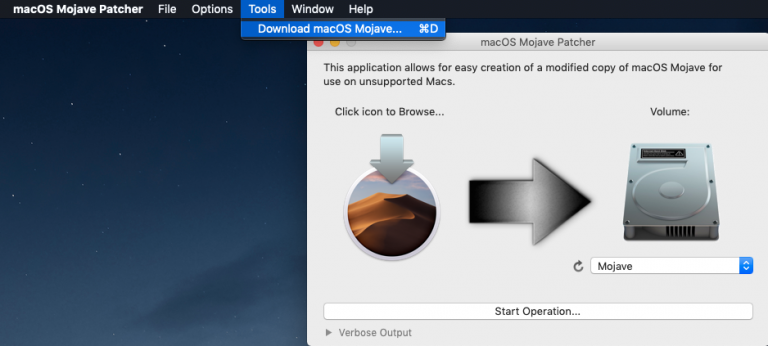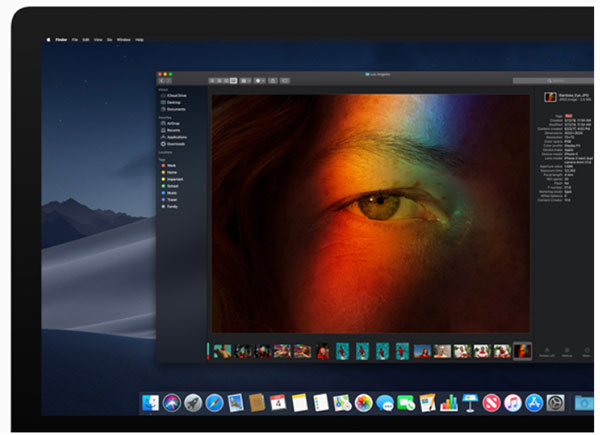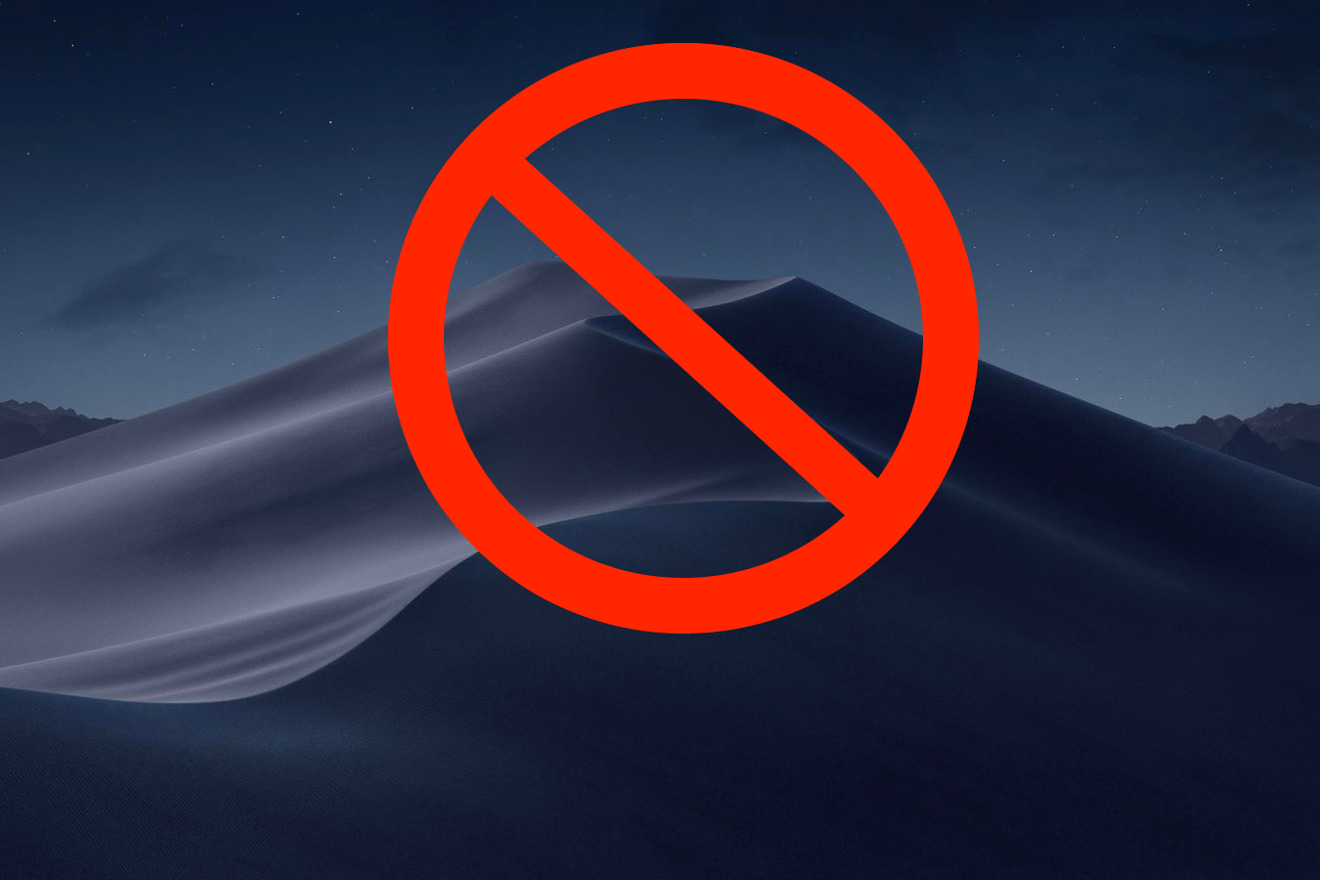Comments
Patched Sur is a UI patcher for macOS Big Sur, designed to make it easy to run macOS 11 on unsupported Macs. This patcher hopes to allow any user of any knowledge to patch their Mac, while still giving you freedom on how you want to use your Mac. Mojave was announced at Apple's Worldwide Developers Conference on June 4, 2018, and was released to the public on September 24, 2018. The macOS Mojave Patcher tool extends the list of compatible hardware. 27 Sep 2018 Unsupported Macs that apparently can use the Mojave patcher to install macOS Mojave include the following: – Early-2008.
- Hi William; Ref: The Mojave Patcher Tool for Unsupported Macs is available for download from DosDude. This is the same guy that did this for High Sierra, and has supplied a series of other hacks and workarounds for fans of older Apple hardware. The guy's name is dosdude1.
- In addition: i habe a very good experience with running High Sierra on two officially unsupported MBPs, one from 2011 and one from 2009. Also Mojave PB is Running pretty stable on another MBP - which is, however, officially supported. I will do the same like with HS, which is skipping the early versions of DosDude’s tool and hen go for it
- Yes, the High Sierra version for unsupported Macs is smooth on my upgraded 2008 unibody. I’ve had no problems running it, and the experience sure beats being stuck on El Capitan.
- So, is the UI really slow without Metal support?
- Re: 'One more thing. If you do use this patch tool to install macOS Mojave on your main Mac, please remember that you can still read AppleInsider on your iPhone if things go awry.'
Priceless. - I’m using DosDude’s High Sierra patcher on the 2008 MacBook Pro I use for live performance, and it runs flawlessly. It’s perky, too! I consider myself very much in his debt.
I’m definitely going to be making the step to Mojave. I wrote him a while back hoping he would be providing a new patcher, and it sure looks like he resolved the issues he mentioned he was having.
I won’t be installing the beta, but once the Gold Master release has been out for 2 or 3 weeks and the first round of fixes have been made, I’m going for it. I should note that I’ve got two much more recent desktop Macs I’ll be updating the old-fashioned, Apple-approved way… I would not recommend running the patcher on your primary lose-it-and-die computer. There’s too much at stake.
Still, everything’s gone smoothly on the High Sierra version. Kudos to DosDude! - Do not tell it outloud. Apple will make all effort to kill that tool to sell more new hardware. It made all effort on the past hardware to make almost impossible to install systems like Linux on their hardware to reuse it. Yes system that in basic form (an many times in competitive form of Ubuntu desktop) can be installed on almost anything you can find in PC scrap. I do not believe it was for perofrmance reasons purely. Also before we jump on conclusion that Apple modern solutions require hardware I have just found out from a freind who just left them that there is a lot to be desired in their system quality area.. especially on Macs. Time to listen to expereinced engineers rather than having cocky programmers who do not understand where all it goes and how it always ends.
- While this article is informative, I think there is information you are leaving out.
I'd give proper attribution to conversation about Mojave on Unsupported Macs being an active discussion hosted by Dosdude on Macrumors.com. Yes, it's a competitor but much of the information needed to be successful about doing this patch is found in the pages and pages of discussion amongst the users as bugs are crushed and more machines are added to the compatibility (or partial compatibility) list. It's no different than when you attribute a store broken by another website or news outlet. Just referring to Dosdude's own download page doesn't get around that fact. - This is probably a good thing. I'm not sure I will venture to Mojave on my MacBook Pro 5,5 or iMac 12,2, though. I put Sierra on the MacBook Pro to keep it aligned with the iMac, and only because Logic X 10.4 demanded Sierra. I might run it on a test hard drive to see what it's like. Sierra works very well on my machine that Apple arbitrarily dumped.
Apple keeps shortening the support time. Logic's demand of Sierra or High Sierra was an annoyance to many Logic users.
This pressure to upgrade has been getting worse because of iOS devices and iOS has an incredibly annoying nag to upgrade. I'm not happy about Apple's choices and it makes it very difficult for their customers to maintain a functioning 'Apple ecosystem' unless they're wealthy enough to repeatedly re-buy effectively the same devices every two or three years. It didn't used to be the case that you had to be wealthy to be an Apple user (just judicious spending and saving), but Apple's ecosystem is exactly designed to encourage, or push, people into multiple Apple devices, and upgrade each one more often. This is bad for consumers and they're too arrogant and too big to notice this. Eventually it will lose them customers and they don't care to watch out for this at this time.
Granted, they did just take some action to possibly pull back on this a bit, with promoting iOS 12 as being faster on older devices (I've avoided iOS 11 but I might go to iOS 12). They need to do more of this, on all platforms. - I bet Windows 10 runs perfectly on Boot Camp on a 2008 Mac without any hacks at all.
Runs perfectly on a 2009 (Mac Pro), at least. And you can even use the most modern Boot Camp drivers by bypassing Apple’s in-Windows compatibility check.I bet Windows 10 runs perfectly on Boot Camp on a 2008 Mac without any hacks at all.- edited July 2018
While I appreciate MR holding the conversation, they didn't break this. When appropriate, we give other sites credit -- including MR. This is a complicated situation for both MR and us, with a history and discussion about it going for pages and pages.While this article is informative, I think there is information you are leaving out.
I'd give proper attribution to conversation about Mojave on Unsupported Macs being an active discussion hosted by Dosdude on Macrumors.com. Yes, it's a competitor but much of the information needed to be successful about doing this patch is found in the pages and pages of discussion amongst the users as bugs are crushed and more machines are added to the compatibility (or partial compatibility) list. It's no different than when you attribute a store broken by another website or news outlet. Just referring to Dosdude's own download page doesn't get around that fact.
Users are welcome to -- and should -- use Google to seek information on any workaround we publish, or to seek amplifying information on tips. - edited July 2018
No, because macOS bases the general UI on the process 'WindowServer', and there was a usefulSo, is the UI really slow without Metal support?
discovery that Apple has not rewritten this using Metal, just preferring to delete the OpenGL drivers
for ye olde 'unsupported' Macs instead. (So far, to Public Beta 3, anyway.)
Turns out the OpenGL drivers and other kernel extensions (kexts) can be re-animated from older macOS releases
with the requisite incantations.
There are some issues with hardware acceleration for certain machines which use AMD GPUs,
but for stuff like the antique 2010 17' MacBookPro6,1 using Nvidia 330M, or even a garden-variety
2008 MacBook5,1 using Geforce 9400M it runs great!
It's amazing that a 10-year-old machine like my 2.4GHz 2008 MacBook using the mighty Intel Core 2 Duo
(with user-replaceable SSD and maxed-out 8GB memory) can run the new release perfectly fine!
Naw, I use DuckDuckGo as my search engine.
While I appreciate MR holding the conversation, they didn't break this. When appropriate, we give other sites credit -- including MR. This is a complicated situation for both MR and us, with a history and discussion about it going for pages and pages.While this article is informative, I think there is information you are leaving out.
I'd give proper attribution to conversation about Mojave on Unsupported Macs being an active discussion hosted by Dosdude on Macrumors.com. Yes, it's a competitor but much of the information needed to be successful about doing this patch is found in the pages and pages of discussion amongst the users as bugs are crushed and more machines are added to the compatibility (or partial compatibility) list. It's no different than when you attribute a store broken by another website or news outlet. Just referring to Dosdude's own download page doesn't get around that fact.
Users are welcome to -- and should -- use Google to seek information on any workaround we publish, or to seek amplifying information on tips.- This type of thing is for enthusiasts only, i.e., people that enjoy computer troubleshooting. People that just blithely say 'it works great' aren't telling the truth.
It’s two clicks more than a regular install and it works perfectly. Don’t say things you don’t understand.This type of thing is for enthusiasts only, i.e., people that enjoy computer troubleshooting. People that just blithely say 'it works great' aren't telling the truth.- edited July 2018
Cool, Good to know I have a spare old 2010 15' i7 MBP complete with SSD internal and maxed out RAM I thought was soon to be a doorstop. As the Boot-Camp work around that is fantastic, I can use it as another opensim server now
Runs perfectly on a 2009 (Mac Pro), at least. And you can even use the most modern Boot Camp drivers by bypassing Apple’s in-Windows compatibility check.I bet Windows 10 runs perfectly on Boot Camp on a 2008 Mac without any hacks at all.
Dude, I have a machine that can't run Mojave, it's from 2011. That is not a short time for software updates. Does Windows run on some really old hardware? Sure but Apple can't be expected to keep your computer supported for more than 8 years. Now I might try to run Mojave on my old MacBook since I'm running it as a torrent server and heck why not. But the only thing I was pissed off about with the update was that there weren't compelling machines to upgrade to for people who's machines were at the end of being supported. Hopefully they'll have the whole line up upgraded in the fall. If you think about it the original iMac G3 was only supported for something like 4ish years, I remember because by the time I bought my new iBook my iMac was considered ancient.This is probably a good thing. I'm not sure I will venture to Mojave on my MacBook Pro 5,5 or iMac 12,2, though. I put Sierra on the MacBook Pro to keep it aligned with the iMac, and only because Logic X 10.4 demanded Sierra. I might run it on a test hard drive to see what it's like. Sierra works very well on my machine that Apple arbitrarily dumped.
Apple keeps shortening the support time. Logic's demand of Sierra or High Sierra was an annoyance to many Logic users.
This pressure to upgrade has been getting worse because of iOS devices and iOS has an incredibly annoying nag to upgrade. I'm not happy about Apple's choices and it makes it very difficult for their customers to maintain a functioning 'Apple ecosystem' unless they're wealthy enough to repeatedly re-buy effectively the same devices every two or three years. It didn't used to be the case that you had to be wealthy to be an Apple user (just judicious spending and saving), but Apple's ecosystem is exactly designed to encourage, or push, people into multiple Apple devices, and upgrade each one more often. This is bad for consumers and they're too arrogant and too big to notice this. Eventually it will lose them customers and they don't care to watch out for this at this time.
Granted, they did just take some action to possibly pull back on this a bit, with promoting iOS 12 as being faster on older devices (I've avoided iOS 11 but I might go to iOS 12). They need to do more of this, on all platforms.
..But the only thing I was pissed off about with the update was that there weren't compelling machines to upgrade to for people who's machines were at the end of being supported. Hopefully they'll have the whole line up upgraded in the fall..This is probably a good thing. I'm not sure I will venture to Mojave on my MacBook Pro 5,5 or iMac 12,2, though. I put Sierra on the MacBook Pro to keep it aligned with the iMac, and only because Logic X 10.4 demanded Sierra. I might run it on a test hard drive to see what it's like. Sierra works very well on my machine that Apple arbitrarily dumped.
Apple keeps shortening the support time. Logic's demand of Sierra or High Sierra was an annoyance to many Logic users.
This pressure to upgrade has been getting worse because of iOS devices and iOS has an incredibly annoying nag to upgrade. I'm not happy about Apple's choices and it makes it very difficult for their customers to maintain a functioning 'Apple ecosystem' unless they're wealthy enough to repeatedly re-buy effectively the same devices every two or three years. It didn't used to be the case that you had to be wealthy to be an Apple user (just judicious spending and saving), but Apple's ecosystem is exactly designed to encourage, or push, people into multiple Apple devices, and upgrade each one more often. This is bad for consumers and they're too arrogant and too big to notice this. Eventually it will lose them customers and they don't care to watch out for this at this time.
Granted, they did just take some action to possibly pull back on this a bit, with promoting iOS 12 as being faster on older devices (I've avoided iOS 11 but I might go to iOS 12). They need to do more of this, on all platforms.
This!
Ending support for my 2011 iMac will probably eventually put me on a new Windows machine. It’ll start with Boot Camp, and then, at some point, I’ll want to stay with what “I know” but will need something faster.
As long as it has a Metal-compatible GPU (or you use dosdude’s “add in the old drivers” utility), it should work perfectly.Dude, I have a machine that can't run Mojave, it's from 2011.But the only thing I was pissed off about with the update was that there weren't compelling machines to upgrade to for people who's machines were at the end of being supported.Wait, what do you mean here?
When this article is written, the new macOS Catalina 10.15.4 is available. And I am running macOS Catalina on my laptop. So basically, I cannot download macOS Mojave from my Catalina Hackintosh using AppStore. Well, I was planning to install macOS Mojave on my VMware on Windows PC. Fortunately, there is a way to download the macOS Mojave installation file and then convert it into an ISO file.
So this article will show you how to download a macOS Mojave installer and then convert it to ISO file. Follow these steps below:
Step 1. Download macOS Mojave Patcher
Basically, this patcher software will automate the macOS Mojave download process. Simply download the file below and run it on your Mac.
Step 2. Download macOS Mojave
Run the macOS Mojave Patcher you’ve just downloaded above.
Go to Tools and then click Download macOS Mojave button. Save the file to your download directory. Make sure you have the full size of the Install macOS Mojave.app file. It’s about 6 GB in size.
At this point, you have successfully downloaded the macOS Mojave installer. Now we are going to convert it into ISO format.
Step 3. Convert to ISO
Macos Patcher Tool
There are several steps in this section. Most of them are done via Terminal. So let’s start.

Create a virtual disk for installation media (DMG)
The command will create a disk image under /tmp folder called Mojave
Mount the disk image
Write the .app installer into the mount point
Mac Os Mojave Patcher Tool

You will need to adjust the location of your .app file.
Mac Os Patcher
Yosemite 10.10.0 dmg. Unmount the Install macOS Mojave installer.

By default, after the above commands, macOS will automatically mount the macOS Mojave installer. We need to eject the Install macOS Mojave before proceeding to the next step. You can right-click on it (usually on your Desktop) and then click Eject “Install macOS Mojave”.
Convert DMG to ISO format
The command will create Mojave.crd under your Download folder.

Change CDR to ISO
Finally, we only need to change the .cdr extension to .iso with this command Savehollywood alternatives catalina.
So now, you have successfully created Mojave.iso.
Macos Mojave Patcher Tools
Thanks to: